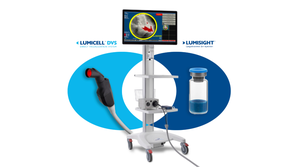Originally Published MDDI April 2006From the Editors A poll shows that while the device industry’s products are appreciated by the public, its companies are not. This could result in a public relations and public policy nightmare if left unchecked.
April 1, 2006
From the Editors
|
Public relations is not usually a core competency of a medical device company. But public relations influences public perception, and public perception influences public policy. And the truth of the matter is that industry's public perception is at risk of taking a hit, and if it does, resulting public policies could have negative consequences for industry. That means industry must get better about communicating with the public about both good and bad events.
A Harris Poll presented at the AdvaMed annual meeting in March bears this out. It mostly brings good news to industry. More than 70% of consumers say the medical technology industry does a good job serving its customers. This is comparable to hospitals and far superior to the pharmaceutical, health insurance, and managed-care industries. A strong majority of physicians and consumers cited access to the most advanced medical technologies as the greatest strength of the U.S. healthcare system. Medical devices trailed only generic drugs on the basis of how much value respondents believe they offer for the money.
But this does not mean the high approval ratings are guaranteed to stick. In 1997, the pharmaceutical industry received a 79% “good job” rating. By 2005, that had plummeted to 44%. Humphrey Taylor, the Harris Poll's chairman, cited four reasons for the decline. First, growth success made high drug costs visible to the public eye. Second, high profit margins caused resentment from a population concerned with healthcare costs. Third, safety issues and recalls caused a loss of public confidence. Fourth, aggressive and, in some cases, unethical sales practices alienated some caregivers and consumers.
Most of these negatives have not yet crossed over to the device industry, but, Taylor said, there is risk that they will. Last year brought several high-profile recalls that led Congress to question whether industry and FDA were properly addressing postmarket safety concerns.
Elsewhere in the poll are seeds of future discontent, should the device industry hit adversity. Only 26% of the general public believes that the device industry is effective at communicating important healthcare issues. A scant 21% say they would give it the benefit of the doubt if it came under media pressure. And only 20% believe industry accepts accountability for its actions. The numbers were only slightly higher for physicians and so-called engaged citizens.
What that means is that industry is scoring well on product characteristics but not corporate characteristics. Congress, physicians, and consumer groups question its accountability, trustworthiness, reliability, and caring. Nearly half of engaged citizens believe that industry puts profits before people and gives inappropriate marketing incentives to physicians.
With that in mind, Taylor told industry that it needs to “solidify positive impressions to both advance and inoculate” itself. This means communication and public relations are key. More needs to be done to take credit for medical breakthroughs. Shift the debate to topics industry can win, and don't let critics define industry. Emphasis must be placed on the high return on investment medical technology brings, especially in terms of the social and personal rewards reaped when a new device or procedure allows a patient to lead a normal life.
This communication effort must come on many fronts. It must reach opinion leaders, hospital administrators, physicians, patients, financial analysts and investors, and regulators. And the effect on media coverage and attitudes must be measured.
Industry must take Taylor's advice and educate all shareholders of the healthcare system about the value of medical technology. Otherwise, poor public relations will lead to poor public perception, which will lead to hostile public policy.
Erik Swain for the Editors
You May Also Like



